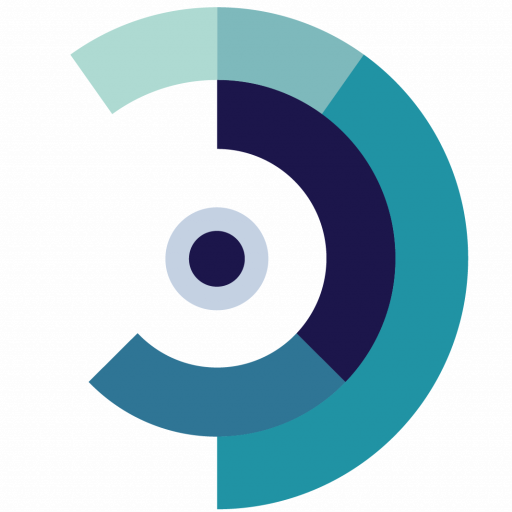DATACROS II Kick-off Meeting
Today, on Wednesday February 23rd, was the day of the Kick-off meeting of project DATACROS II – Empowering a Tool to Assess Corruption Risk factors in firms’ Ownership Structure (ISF Police 2017-AG-CORRUPT-101038736), co-funded by the European Commission – DG Home Affairs and coordinated by Transcrime.
This represents the second phase of project DATACROS (2019-2021), in which Transcrime has developed a prototype of an IT tool based on artificial intelligence, able to provide support to investigation, intelligence, monitoring, and risk assessment activities carried out by public authorities in the field of anti-corruption and in the prevention of financial and corporate crimes. During these two years, the tool has already been tested by national and international networks of law enforcement agencies, anti-corruption authorities and other public authorities. In the tests conducted, the tool has already demonstrated a very strong predictive capacity, for example being able to correctly identify up to 83% of companies linked to people subject to sanctions or with criminal records.
In the second phase of the project, the application will be strengthened and improved thanks to the support and suggestions of 18 public authorities partners of the project – including Europol, ANAC, French and Romanian anti-corruption authorities, LEAs from France, Belgium, Spain and Romania, and the French anti-trust authority. In particular, the risk scoring and screening functions will be extended and new data sources (with global coverage) and new anomaly indicators for risk assessment will be included.
The project will also provide the opportunity to create a network for sharing and exchanging information between these institutions, which have one particularly relevant element in common: the identification and monitoring of companies potentially linked to illegal phenomena. During the project, the organization of periodic meetings and workshops will stimulate discussions on these issues, facilitating the exchange of good investigative practices, intelligence techniques, new patterns and anomaly indicators. In particular, the network will also include partners in the field of investigative journalism, including OCCRP (global level), IRPI (Italian level) and RISE PROJECT (Romania). Thanks to this, DATACROS II constitutes an unprecedented large-scale collaborative initiative between public authorities and civil society actors for the prevention of financial crime.
The kick off meeting was held virtually, to guarantee all 18 partners the opportunity to participate safely and to be actively involved in the discussion. During the meeting all partners were able to present to the consortium their role and expectations on the project, starting to organize the following activities.
During the next months we will continue to update you on the news about the project and on the results that the consortium will achieve. In the meantime, you can find more information on what has already been realized on the DATACROS I website.
List of project Partners:
LEAs/AROs:
ANABI – Agentia Nationala de Administrare a Bunurilor Indisponibilizate, Romania
CNP – Cuerpo Nacional de Policía, Spain
BFP – Police Federale Belge, Belgium
DCPJ – Direction Centrale de la Police Judiciaire, France
Anti-Corruption Agencies:
AFA – Agence française anticorruption, France
ANAC – Autorità nazionale anticorruzione, Italy
OPLC – Prevention and Fight against Corruption Office of the Balearic Islands, Spain
ANI – Agenția Națională De Integritate, Romania
DNA – National Anti-Corruption Directorate, Romania
Competition Authorities:
ADLC – Autorité de la Concurrence, France
CCRL – Competition Council of the Republic of Lithuania, Lithuania
UOHS – Urad pro Ochranu Hospodarske Souteze, Czech Republic
Civil society and Investigative journalists:
IRPI – Investigative Reporting Project Italy, Italy
RISE – Asociatia Rise Project, Romania
International Networks:
Europol
NCPA – Network of Corruption Prevention Authorities
OCCRP – Organized Crime and Corruption Reporting Project

Latest news
View all news
EMERITUS: investigative protocol and technologies to detect waste crime
Waste crimes, including waste dumping, trafficking, and illegal storage, are multifaceted environmental offences. Investigating them is challenging not only due to complex modi operandi and multiple actors involved, but also because their environmental impact is often not immediately visible. The Horizon Europe-funded project…

Transcrime awarded ISF project SECURE to strengthen anti-corruption enforcement
SECURE is a research project co-funded by the European Union’s Internal Security Fund. Its aim is to strengthen anti-corruption efforts across Europe by addressing current and emerging threats. The project will enhance anti-corruption enforcement by: reviewing the anti-corruption pillar of the EU Rule of Law (RoL) report and analysing obstacles to…

Conference: ‘Assessing risks in the supply-chain”
A conference in Italian will be held on 4 June at the Università Cattolica del Sacro Cuore in Milan. It will bring together researchers, authorities and compliance and security professionals from leading Italian companies to discuss risk assessment in supply chains. Date and time: 4…

NextIJ training sessions for investigative journalists
The Next-IJ project is offering a series of three online investigative journalism workshops designed to improve the skills of European journalists in key areas such as data journalism, investigative techniques and the essential ethical and legal frameworks needed for effective reporting. These workshops will take…

25 years of the ESC – memories of Ernesto Savona (ESC President 2003-2004)
The following article was produced by Professor Ernesto Savona, Director of Transcrime, on the occasion of the 25th anniversary of the European Society of Criminology and is available on the ESC website. In 2003, when I was elected President of the ESC, the driving idea was the opening of…

Four journeys into criminology: meet the PhD students of the XL cycle
What pathways lead to a PhD in criminology? For Davide, Gaia, Alessandro, and Sara, the answer is as varied as their backgrounds. Yet, for each of them, it was a blend of personal passion, professional experience, and intellectual curiosity. Finance, engineering, law, and statistics. Each…

